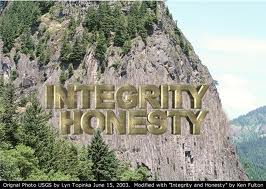COMMUNICATION
Communication is the activity of conveying meaningful
information.
Communication requires a sender, a message, and an intended recipient, although
the receiver need not be present or aware of the sender's intent to communicate
at the time of communication; thus communication can occur across vast
distances in time and space. Communication requires that the communicating
parties share an area of communicative commonality. The communication process
is complete once the receiver has understood the message of the sender.
- An information source, which produces a message.
- A transmitter, which encodes the message into signals
- A channel, to which signals are adapted for transmission
- A receiver, which 'decodes' (reconstructs) the message from the signal.
- A destination, where the message arrives.
The history of communication dates back to prehistory. Communication can range from very subtle processes of exchange, to full conversations and mass communication. Human communication was revolutionized with speech perhaps 200,000 years ago citation needed Symbols were developed about 30,000 years ago [1], and writing about 7,000. On a much shorter scale, there have been major developments in the field of telecommunication
Ways We
Communicate:
- Talking
- Hand Gestures
- Colour Codes
- Music
- Drawings
- Cards
- Text Messaging
- Telecommunications
- Phone Call
Types of Business
Communication
There are
two types of business communication in an organization:
- Internal Communication
- External Communication
1.
Internal Communication
Communication within an organization is called
"Internal Communication".
It includes all communication within an
organization. It may be informal or a formal function or department providing
communication in various forms to employees.
Effective internal communication is a vital mean of
addressing organizational concerns. Good communication may help to increase job
satisfaction, safety, productivity, and profits and decrease grievances and
turnover.
Under Internal Business Communication types there
come;
a) Upward Communication
b) Downward Communication
c) Horizontal/Literal communication
b) Downward Communication
c) Horizontal/Literal communication
a) Upward Communication
Upward communication is the flow of information
from subordinates to superiors, or from employees to management. Without upward
communication, management works in a vacuum, not knowing if messages have been
received properly, or if other problems exist in the organization.
By definition, communication is a two-way affair.
Yet for effective two-way organizational communication to occur, it must begin
from the bottom.
Upward Communication is a mean for staff to:
o Exchange information
o Offer ideas
o Express enthusiasm
o Achieve job satisfaction
o Provide feedback
b) Downward Communication
Information flowing from the top of the
organizational management hierarchy and telling people in the organization what
is important (mission) and what is valued (policies).
Downward communication generally provides enabling
information - which allows a subordinate to do something.
e.g.: Instructions on how to do a task.
Downward communication comes after upward
communications have been successfully established. This type of communication
is needed in an organization to:
Ø Transmit vital information
Ø Give instructions
Ø Encourage 2-way discussion
Ø Announce decisions
Ø Seek cooperation
Ø Provide motivation
Ø Boost morale
Ø Increase efficiency
Ø Obtain feedback
Both Downward & Upward
Communications are collectively called "Vertical Communication"
c) Horizontal/Literal communication
Horizontal communication normally involves
coordinating information, and allows people with the same or similar rank in an
organization to cooperate or collaborate. Communication among employees at the
same level is crucial for the accomplishment of work. Horizontal Communication
is essential for:
o Solving problems
o Accomplishing tasks
o Improving teamwork
o Building goodwill
o Boosting efficiency
2.
External Communication
Communication with people outside the company is
called "external communication". Supervisors communicate with sources
outside the organization, such as vendors and customers.
It leads to better;
It leads to better;
o Sales volume
o Public credibility
o Operational efficiency
o Company profits
It should improve
o Overall performance
o Public goodwill
o Corporate image
Ultimately, it helps to achieve
o Organizational goals
o Customer satisfaction
In short, there are four main
types of communication; these consist of written, verbal,computerised and
special methods. (Verbal can be split into two groups; verbal and non-verbal)
Non-verbal communication involves things such as body language, crossing your
arms, having your hands in your pockets, crossing your legs, eye contact etc.
















